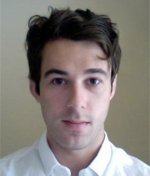
- This event has passed.
Logic and Philosophy of Science Research Group Talk (Konstantin Genin, U of T)
Thursday October 17, 2019, 3:00 pm - 5:00 pm
Event Navigation

Konstantin (Kasey) Genin is a postdoctoral fellow at the University of Toronto. Kasey’s research is in the areas of philosophy of science, formal epistemology, machine learning, and philosophy of statistics. His work focuses on the ways in which reliable inferences are made from statistical data, and addresses feasibility contextualism, epistemic justification, Ockham’s razor, and theoretical virtues like simplicity, unity, and testability.
Talk Title:
Simplicity and Scientific Progress
Abstract:
A major goal of twentieth-century philosophy of science was to show how science could make progress toward the truth even if, at any moment, our best theories are false. To that end, Popper and others tried to develop a theory of truthlikeness, hoping to prove that theories get closer to the truth over time. That program encountered several notable setbacks. I propose the following: a method for answering an empirical question is progressive if the chance of outputting the true answer is strictly increasing with sample size. Surprisingly, many standard statistical methods are not even approximately progressive. What’s worse, many problems do not admit strictly progressive solutions. However, I prove that it is often possible to approximate progressiveness arbitrarily well. Furthermore, every approximately progressive method must obey a version of Ockham’s razor. So it turns out that addressing the problem of progress uncovers a solution to another perennial problem: how can we give a non-circular argument for preferring simple theories when the truth may well be complex?
About the Logic and Philosophy of Science Research Interest Group
One of five departmental Research Interest Groups, the Logic and Philosophy of Science Group hosts talks on logic, general philosophy of science, and philosophy of the particular sciences, as well as talks in allied areas such as formal epistemology, decision theory, and the metaphysics of science.
SHARE